
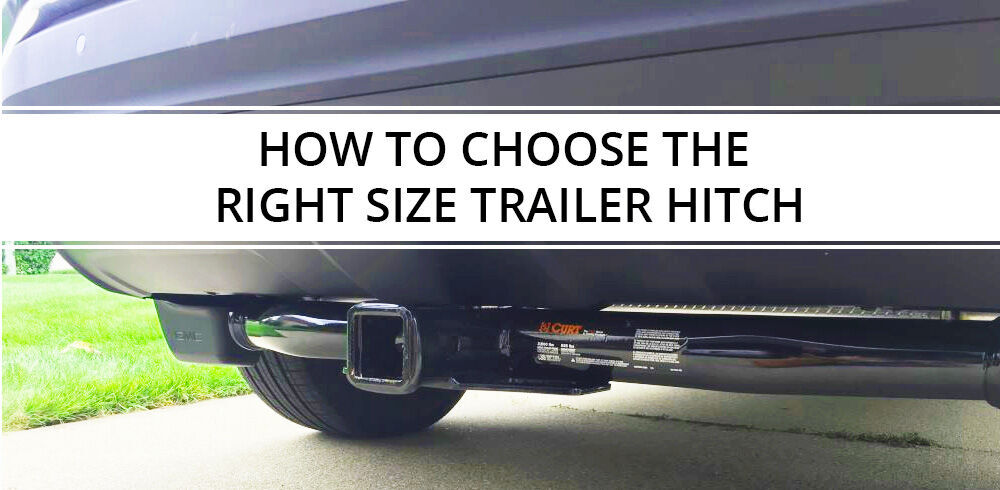
Which Class of Trailer Hitch is Best Suited for You?

What are the Different Trailer Hitch Classes?
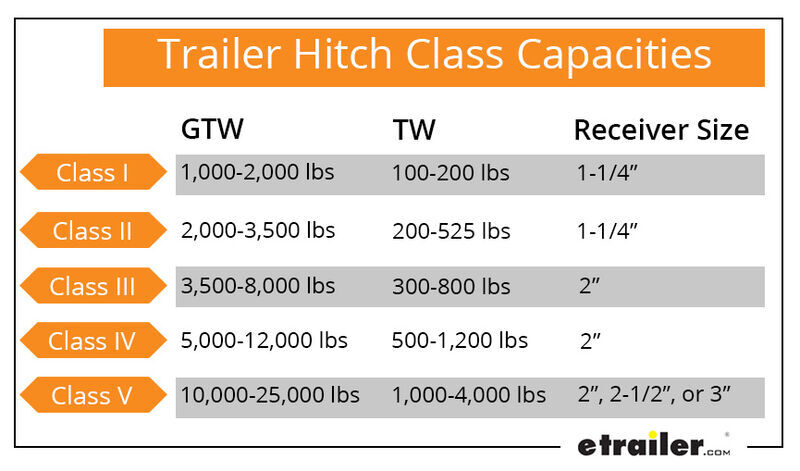
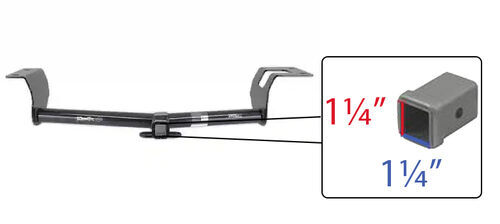
What is a Class I Trailer Hitch?
Bikes (max 2) Cargo carriers Kayaks Canoes Mobility scooters Small trailers
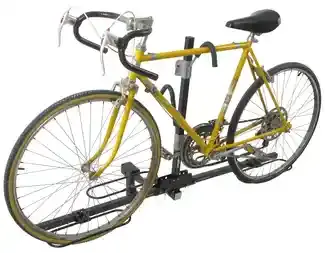
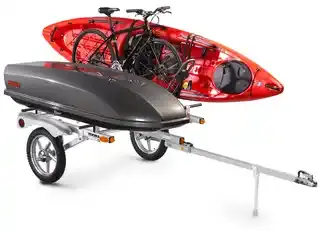
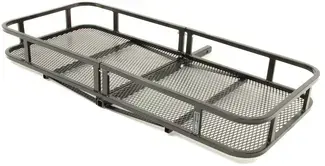
Compact cars Midsize cars Full-size cars SUVs Minivans


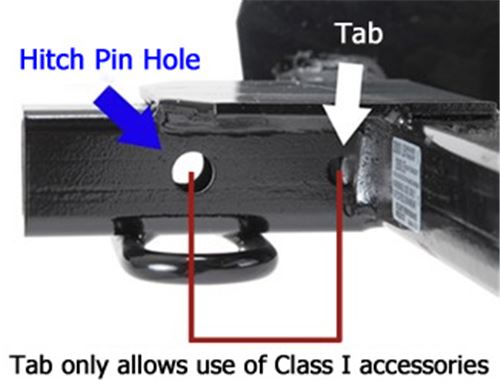
What is a Class II Trailer Hitch?
Bikes Cargo carriers Kayaks Canoes Mobility scooters Small trailers Small pop-up campers Small boats



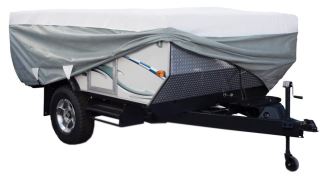
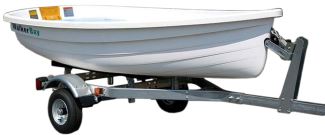
Compact cars Midsize cars Full-size cars SUVs Minivans

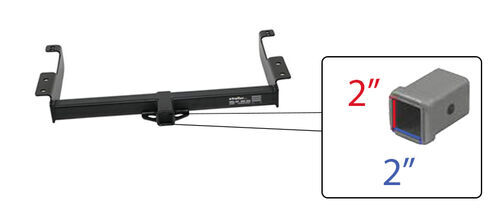
What is a Class III Trailer Hitch?
Midsize campers Utility trailers Lawn maintenance equipment Bikes Cargo carriers Kaykas Canoes Motorcycles Snowmobiles



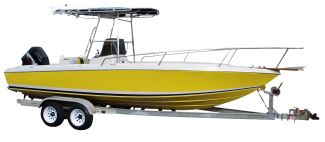
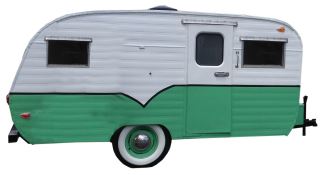
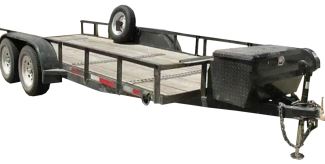
Full-size cars Large SUVs Minivans Trucks


What is a Class IV Trailer Hitch?
Large campers Large boats Toy haulers Horse trailers






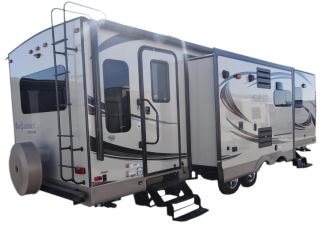
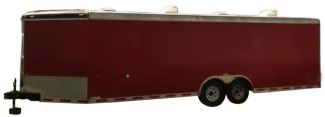
Heavy-duty trucks Large SUVs

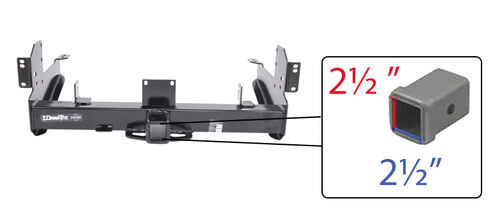
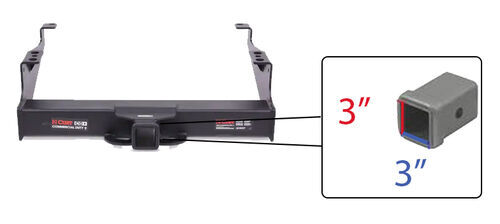
What is a Class V Trailer Hitch?
Large toy haulers Equipment haulers Multi-car trailers Horse trailers


Heavy-duty trucks Commercial trucks

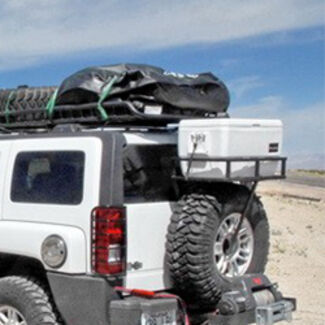
Jack
7/13/2023
Need front 2” receiver hitch for 2008 Winnebago 30 ft sight seer. Please advise.


Chris R.
8/2/2023

Angel
5/4/2023
Have a 3" hitch on my truck and having a really hard time finding rec accessories that work without an adapter. Do you think bike racks will eventually come out made to fit this size or are adapters always in my future? Thanks.
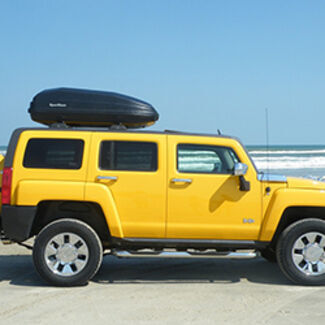
Ken N.
4/21/2023
I have a 2023 Highlander XLE. I have a small trailer 5 x 6. I need a 2”x 2” I/D hitch. What hitch would you recommend and price.
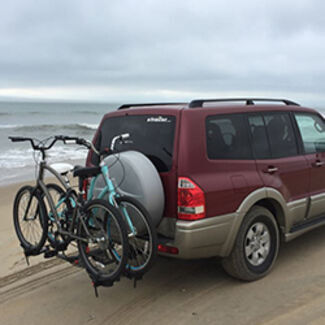
Moses R.
11/14/2022
I have a Lexus ct200h I want to put a motorcycle with a yes I’m 800 lb trailer What type of hitch do I need

David B.
11/15/2022

Donald L.
8/3/2022
I have a 2014 Winnebago cambria class c MH 30j it has 5” c channel rails extended to rear it has a class 3 hitch which says not to use WD dist hitch it measures 42&1/4 inches to outside of rails do you have a class 4 hitch that would work I’m going to beef up the rails I’m gonna be pulling a enclosed car trailer approx weight 7500to 8000 lbs with a good bit of TW thanks

David B.
8/5/2022
Helpful Links


Peter S.
7/1/2022
I purchased a Teske LoPro 6 ft x 12 ft ATV Utility Trailer w/ 4 in Drop Axle. Do I need a ball and hitch that is a 4 inch drop as well? I have a Dodge Durango to tow this with.

David B.
7/1/2022
Helpful Links

Jeff P.
6/29/2022
Was not an exact fit the bolt holes did not line up in the back flange area is too wide I will have to cut it to get it to fit and cut my sea channel off my old one to cradle the new one to have a good bolt fit

David B.
6/30/2022

Jeff P.
6/30/2022



David B.
6/30/2022

Dave P.
6/26/2022
question: we just got a 2022 Subaru Forester Unlimited full package, except im not going to pay $1000 for them to install a tow package, we are moving from Oregon to Ohio soon and want to tow a 4x8, 5x8 u-haul trailer, what hitch do you recommend ?

David B.
6/27/2022

Dee
5/4/2022
Did not get response from you yet. I would like to know how long before I can get (slide on) towing mirrors for my 2021 ford ranger truck?

David B.
5/4/2022
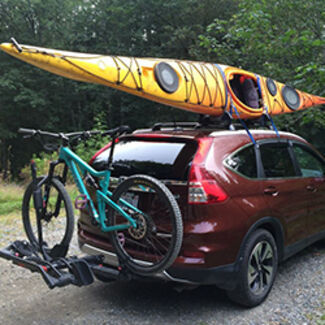
Tim S.
4/8/2022
Hello! I've been an informal customer of etrailer for years. I'm always satisfied with your products, more specifically, Curt hitches. I have them on 3 various vehicles and am very satisfied. Now as to my opinion about improvement: Wish your company had better accesses to " call-in" customer questions. The 800 number menu doesn't seem to have that option.The FAQ is good but searching for answers is a task. I thought you folks had a "chat" option for quicker answers to simple questions? My issue: trying to find an answer to my particular query: will any make hitch fit a 2019 Colorado WT (work truck) allowing the GM factory 'bumper hitch' to remain?

David B.
4/13/2022
Helpful Links

Macauley D.
3/26/2022
Request recommendation for hitch and wiring for a2022 3.6 liter awd jeep Cherokee limited to pull boat (3100 lbs) and trailer

Les D.
3/28/2022

Macauley D.
3/28/2022





Paul
2/9/2022
Do you carry a class III hitch for a 2019 Chev Malibu? I know it doesn't need the III due to lower GTW just looking for the 2” receiver vs having to deal with adapters from 1 1-4 to 2”. Thanks!


Les D.
2/10/2022

Peter R.
1/28/2022
I have a new 2025 Ford Ranger XL and I wanted to install a 2" front receiver on it to facilitate handling boat trailers and hooking up a Snow Sport snow plow. For whatever reason e trailer and most of the other suppliers of hitches don't seem to carry such a hitch for this vehicle. Why not?

Les D.
1/31/2022

Peter R.
1/31/2022

Les D.
1/31/2022
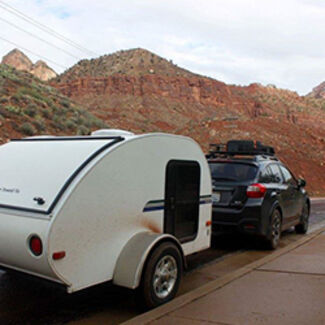
Richard T.
11/1/2021
We have a 2016 Nissan Rogue and need to carry my 3 wheeled scooter on my rack with a side ramp (folded down). What trailer hitch or kit do I need, please. I'm so confused I am ready to just quit and say home.

Al J.
10/27/2021
I have a2022 HondaPilot awd touring and has ahands free liftgate sensor does it affects when installing the hitch?

Les D.
10/28/2021
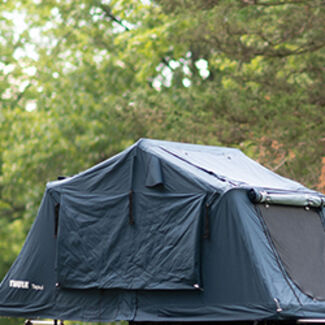
Buddy L.
10/15/2021
i have a 2005 subaru baja, what hitch will work, it will only be used to tow a utility trailer 4'X10'

Les D.
10/26/2021

David N.
9/30/2021
I have a 05 Hyundai Tucson that I would like to put a hitch and basket on to place a spare generator that weighs 60# on and carry it Any suggestions?

Les D.
10/14/2021
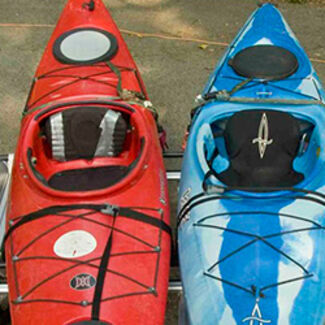
Wael
9/18/2021
Dears I have Tiguan 2016. and I'm looking for a Trailer hitch to be fixed berfectly on my vehicle. I need something like the above with a cross tube because I didn't have a base to fix just the hook, I need the all base to be fixed in my vehicle. waiting for your reply & appreciate your support. Thank you in advanced

Les D.
10/14/2021
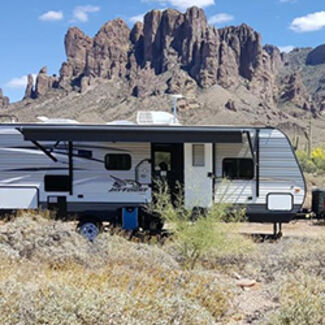
Noreen K.
7/23/2021
Hi, Is there a Class II trailer hitch available for a 2017 Infiniti QX50? I want to carry 3 bicycles on a rack and my understanding is you need to have at least a Class II hitch in order to do that. Thanks.


Jon G.
7/23/2021

Tom S.
6/5/2021
My wife and I purchased a 2019 Buick Encore and now we need to haul a mobility scooter. All things I have read say this can not be done. the scooter carrier weight is 90 pounds and the scooter weight is 108 pounds. would a class II hitch work?


Jon G.
6/9/2021

Dustin S.
8/20/2021

Tom O.
5/30/2021
I have a front hitch * C31083 from a 2010 F 150 is there a kit I can use for my 2021 F 150 or do I need to purchase a 65061 to make my truck usable?

Keith M.
5/24/2021
I have a trailer hitch and the bolt pattern doesn't match so what do I do and can you show me a video


Jon G.
5/25/2021
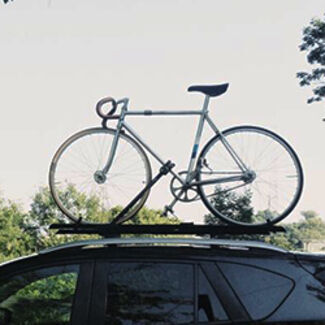


Jon G.
4/28/2021
Helpful Links
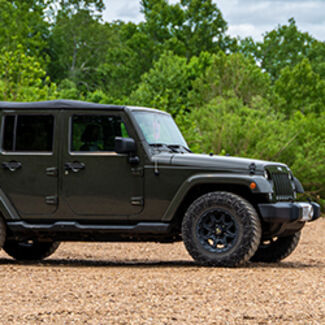
Chris W.
4/22/2021
I have a Ford F250 with a Class V hitch rated for 12500 pounds weight distributing and 5000 pounds weight carrying. I'm buying a dump trailer with a max gross weight of 12000 pounds. In order to use the full capacity of the trailer, do I need to use a weight distributing hitch?


Jon G.
4/27/2021

Frank P.
4/7/2021
I own a 2016 Honda CR-V, EX model, AWD. I also now own a 16' Princecraft Alum. boat with a mounted 40HP Mercury motor. I will need to tow a single axle trailer requiring a 2" ball (a typical small craft fishing boat trailer). FYI: The CR-V listed tow rating is only 1500 lbs. My dilemma is two fold: visible appearance of an exposed hitch (like Curt or Reese for instance) versus a non-visible brand (Hidden Hitch), AND, if I choose Curt for instance, which is suspended lower and decreases the ground clearance, might this install have an effect, in most cases (depending on the launch site) when I launch and retrieve my boat from the waterways ?? Please, a unbiased response would be sincerely appreciated. Thanks,


Jon G.
4/7/2021


Melvin C.
4/6/2021
I have a 2017 Ford Lincoln MKX. I am looking for a Class III hitch complete with wiring assembly. I did not see this in your selection guide. Can you help me with this?

Ed M.
4/2/2021
I am interested in a hitch receiver for my 2020 Buick Encore GX Preferred FWD 1.2 motor. We own a hitch mounted bicycle carrier. We would need installation as well. Thank you,


Clayton F.
3/9/2021
I want to install a class 3 hitch to my 2021 Honda Pilot. I want a hitch that comes with a hole on it so I can later install the 7pin light adapter . what is the cost for this hitch


Jon G.
3/11/2021

Bill P.
2/28/2021
I have a 2017 Toyota highlander limited with 19" full size spare I want to include in place of the small spare. Receiver hitches I've tried will not accommodate the larger tire. Any thoughts tks



Jon G.
1/18/2021



Jon G.
12/24/2020
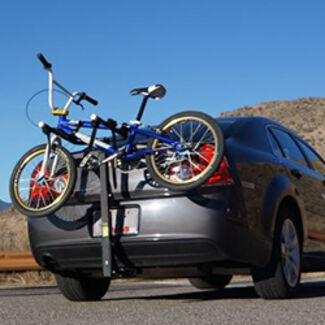
Lisa
11/19/2020
I have a 2004 Ford Escape XLT four-wheel drive. What would be the best reese hitch to put on my vehicle? I would like to have one to where I could haul a utility trailer with a few appliances on it and maybe a smaller camper. Thank you so much in advance.


Lisa
11/19/2020


Jon G.
11/19/2020

Jacob D.
11/5/2020
My 2010 Mercedes ml350 is rated to tow 7500 lb trailer is their a hitch to fit and handle it?


Jon G.
11/6/2020
Helpful Links

John H.
10/13/2020
I have a 2006 Airstream Safari that I would like to install a trailer hitch to the rear of so that I can use a bike rack (2"). What do you recommend I do and get?


Jon G.
10/13/2020
Helpful Links

Dan M.
10/12/2020
Hi there I’m looking for a trailer hitch for a 2017 Silverado 1500 4.3 But it shows two diferente models C13301 and 13175 Can you help me understand the difference ir which one is the correct one for my vehicle Thanks.



Luke R.
10/10/2020
i have a 2014 traverse want to pull flat bed utility trailer. Will haul rock and gravel. what is the best trailer hitch for this work. not an on going thing. may be 3 times a year

Steven Z.
9/22/2020
I am planning on buying a 2021 Acura RDX and would like to add a trailer hitch to accommodate between 2 - 4 bike racks. As I understand, a 1 1/4 inch Class I hitch will not work for more than 2 bikes. Acura only has a 1 1/4 inch but has an attractive cover panel to cover the hitch frame. Do you have a recommendation? Can one use a 2 inch trailer hitch and still us the cover panel?


Jon G.
9/23/2020

Steven Z.
9/23/2020


Jon G.
9/23/2020

Steven Z.
9/23/2020



Carlos T.
8/11/2020
I have a lexus rx 350 2020 and I want to adapt TOW HITCH RECEIVER [8] for bike can you give me information about it.


Jon G.
8/19/2020

Gerald M.
8/9/2020
I have 2019 Honda Fit. Ian thinking of putting a trailer hitch on my vehicle with a square pipe-attract to it instead using the ball. Is this possible? Thanh you


Jon G.
8/19/2020

Mike K.
7/30/2020
i have a 2016 gmc kuv van need a tow hitch and receiver not sure which one to use please help thanks

Joy
7/29/2020
I’m looking for a hitch to place on the back of my Fifth wheel so that I can add a rack to hold standup kayak mounts. What hitch should I get to mount to the chassis of the camper?


Jon G.
8/6/2020
Helpful Links

Andy K.
7/22/2020
Quick question. I have a Scion xB 2008. My owners manual says it doesn't not recommend a tow hitch. What's ur say and why do they recommend that, but companies like urs will sell you anyways. Please respond cause I want one to be installed. Let me know and since ur cheaper than Amazon I will glad purchase from u'all. Get back yo me asap I need the class 2 hitch deliverid


Chris R.
7/24/2020


Steve C.
7/20/2020
Would like to put a front mount hitch on my Jayco Class C to carry a spare. 2012 Ford E450. Can’t seem to find an E450 listed as a choice.

Steve C.
6/28/2020
I'm looking for hitch possibilities to pull a 2 to 3 horse trailer with a 2018 Ford F150. It has a 5.5 foot bed. Looking at both gooseneck and receiver type hitches.


Chris R.
6/29/2020

Pavlo
6/25/2020
Hey, I am a bit confused: if I don't plan to use hitch for anything larger than 4 bikes or couple of kayaks, is there any downside to buying Class I? Also, what's the critical difference between Draw-Tite and Curt and which one (brand and class) would you recommend for Mazda CX-5 2019? Thank you!


Chris R.
6/29/2020

Ed C.
6/19/2020
20119 DODGEGOURNEY Looking to to tOW mall trailer to SC Any Ideas? LOOKINGhAVE 5 CATS AND DOG (LARGEONE) CEC331@YAHOO.COM tHINKING POSSIBLY TWO Y WO TRPS


Chris R.
6/23/2020

Andy
6/19/2020
My wife and I just purchased a 2019 Buick Encore, We are confused, due to getting 2 different stories. Will we be able to tow a small trailer with our new car? and if so what size and total weight? Thank you


Chris R.
6/23/2020


Luis T.
6/10/2020
I have a 57 Chevy panel truck the frame is 34”wide would like a class3 hitch to fit I seen a curt number 13322 would this fit if not can you help thanks


Jacob H.
6/12/2020
Helpful Links

Hamid S.
5/26/2020
Hi. I have vw tiguan 2020 RLine and I need a trailer hitch includ wiring, 7 pins mount.(class III). If you have a special staff for RL please let me know and give me a complete prices. I live in Toronto,ON,Canada. Please and thank you.

Richard H.
5/21/2020
I am really confused and desperately need some help. I have a 2017 Pathfinder S and after researching, purchased a 2014 Shasta Oasis 21ck with a dry weight of about 4100 lbs.. I have received opinions and information from every direction about what I'm able to tow and now I fear my research was all wrong and am terrified I'm stuck with a camper I can't pull. It will be ready for pickup this weekend and I have scheduled a class lll hitch installation at the local Uhaul. Can you guide me in the right direction please before I destroy my vehicles?


Chris R.
5/25/2020
Show All (56) Replies
Hide Replies

on Trailer Hitch
Videos
for Trailer Hitch
Help Articles
for Trailer Hitch
Expert Answers
for Trailer Hitch
The difference between the Class II and Class III hitches has to do with their Gross Trailer Weight (GTW), their Tongue Weight (TW), and their Hitch Receiver Size. Class II trailer hitch receivers have a 1-1/4 inch receiver and can be rated up to…
view full answer...A 4-Way trailer connector has the basic lighting functions only; running lights, left turn signal and brake lights, right turn signal and brake lights, and ground. A 7-Way has these functions and a 12 volt circuit, a circuit for electric trailer…
view full answer...The main difference between a Class III hitch and a Class IV hitch is the capacities they set for the hitches. Class III hitches are rated for up to 6,000 lbs GTW with 600 lbs TW whereas a Class IV is rated for up to 12,000 lbs GTW and 1,000 TW.…
view full answer...There is only one difference between the Curt Trailer Hitch Receiver #C13176 and etrailer Trailer Hitch Receiver #e98909 that fit your 2020 Chevrolet Colorado, which is the finish. The Curt trailer hitch has a glossy black finish while the etrailer…
view full answer...The B&W Companion OEM 5th Wheel Hitch w/ Slider for Chevy/GMC Towing Prep Package #BWRVK3775 you're looking at will work fine with your new Chevrolet Silverado. This hitch has 3 height adjustments so you'll be able to set the…
view full answer...To get the B&W Patriot #BWRVK3200 to work with your 2006 Dodge Ram you're going to need a set of 5th wheel rails #DM8552016-71. These rails are custom fit to your vehicle so they'll just bolt right up to the frame. It is worth…
view full answer...Class I and Class II hitches both have a 1-1/4 inch receiver opening. The difference is that a Class I hitch has a lower tongue weight rating, usually 200 pounds and a lower towing rating, usually 2,000 pounds. A Class II hitch usually has a tongue…
view full answer...Just looking at your Tern HSD bike with fenders, I'm going to say no the Saris MHS Bike Rack for 1 Bike #SAR23MR is not going to work. I did some research and it looks like a lot of Tern owner's went with the Hollywood Racks Sport…
view full answer...Since you're willing to remove your 2008 Toyota Tundra's factory hitch, I recommend the etrailer Hitch item #e66KR. This is a class V hitch with a 2" receiver. It has a massive 16,000 lbs towing capacity, which is the closest…
view full answer...To add a hitch to your 2024 Chevrolet Trailblazer, I recommend the Draw-Tite item #DT55GR. This hitch is custom fit and bolts to your Chevy with included hardware. This is a class III hitch with a 2" receiver, that has a 3,500 lbs towing…
view full answer...It is, yes. It can be hard to tell for sure, so I have added a photo for you showing the underside of a 2024 Mazda CX-90 with the Curt Trailer Hitch Receiver #C25FV. As you can see by that photo, the crosstube is concealed and hidden away, so only…
view full answer...Yes, the Curt hitch part #C78VV that you referenced does fit your 2023 Chevy Colorado Z71.
view full answer...Departments
Towing
- Trailer Hitch
- Fifth Wheel
- Gooseneck
- Towing a Vehicle
- Front Hitch
- RV Hitch
- ATV Hitch
- HD Truck Hitch
- Vehicle Wiring
- Brake Controller
- Ball Mounts
- Weight Distribution
Sports and Recreation
Trailer Parts
- Utility Trailer
- Boat Trailer
- Landscape Trailer
- Enclosed Trailer
- 5th/Camper Trailer
- Car Hauler
- Horse Trailer
Vehicle
Contact & Help

What our customers are saying:
"Very helpful/friendly Customer Service. Competitive Pricing. Shipping was Fast."
Popular Vehicles
- Subaru Forester
- Ford F-350 Super Duty
- Ford F-250 Super Duty
- Chevrolet Silverado 1500
- Jeep Wrangler Unlimited
- Jeep Wrangler
- Ram 3500
- Toyota Highlander
- Ram 2500
- Chevrolet Silverado 2500
- Subaru Outback Wagon
- Chevrolet Silverado
- Dodge Ram Pickup
- GMC Sierra 2500
- Ram 1500
- Ford F-250 and F-350 Super Duty
- Jeep Grand Cherokee
- Toyota Tacoma
- GMC Sierra 3500
- Toyota Tundra
- Ford Escape
- More >>
- Jeep Cherokee
- GMC Sierra
- Toyota RAV4
- Nissan Rogue
- Dodge Grand Caravan
- Toyota Sienna
- GMC Sierra 1500
- Honda Odyssey
- Chevrolet Equinox
- Chevrolet Silverado 3500
- Ford Explorer
- Chrysler Town and Country
- Ford F-150
- Jeep Liberty
- Nissan Murano
- Ford Edge
- Subaru XV Crosstrek
- Hyundai Santa Fe
- Chevrolet Silverado New Body
- Ford F-250 and F-350 Heavy Duty
- Kia Sorento
- Chevrolet Traverse
- Dodge Journey
- Acura MDX
- Honda CR-V
- Chevrolet Silverado Classic
- Jeep Patriot
- Ford Focus
- Acura RDX
- Honda Fit
- Ford Fusion
- Ford Flex
- Honda Pilot
- GMC Acadia
- Toyota Prius
- Dodge Durango
- Nissan Frontier
- Nissan Pathfinder
- GMC Terrain
- Honda Accord
- Volkswagen Jetta
- Kia Soul
- Dodge Dakota
- Chevrolet Cruze
- Chevrolet Sonic
- Mazda 3
- Toyota FJ Cruiser
- << Less


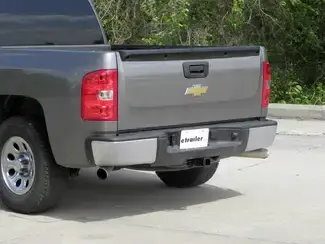
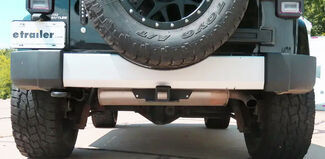
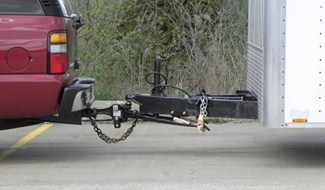
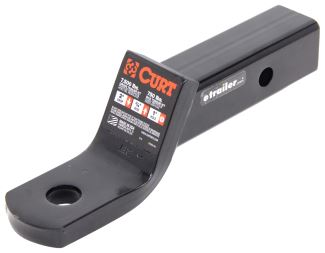
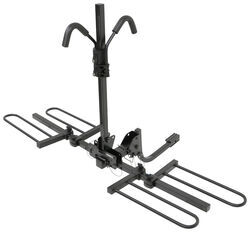
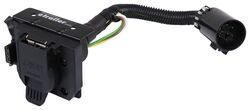


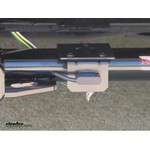














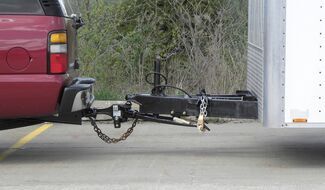

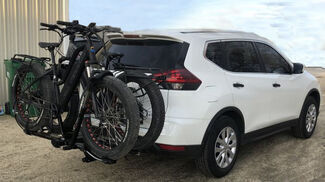

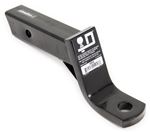



Artnav19
7/15/2023
Hi guys. I am looking for a good hitch that allow my Nissan Rogue 2022 to be more versatile when it comes to carry bikes or small trailers. With this being said I'm not sure on what decision to make. As per my manual the vehicle towing Max capacity is 1350 pounds which means the class I would be the best option. However, I saw a Class II of 2" x 2" being installed in a Rogue 2023. My question is. What if I get a Class II installed to make the vehicle more versatile? How can this affect it or make unsafe the driving experience?